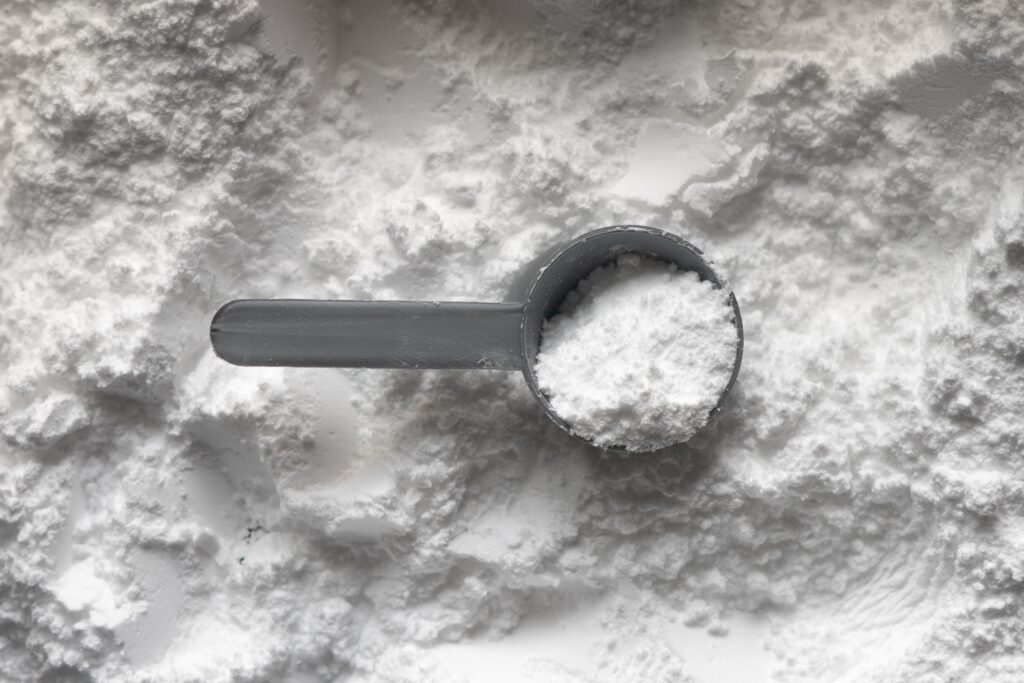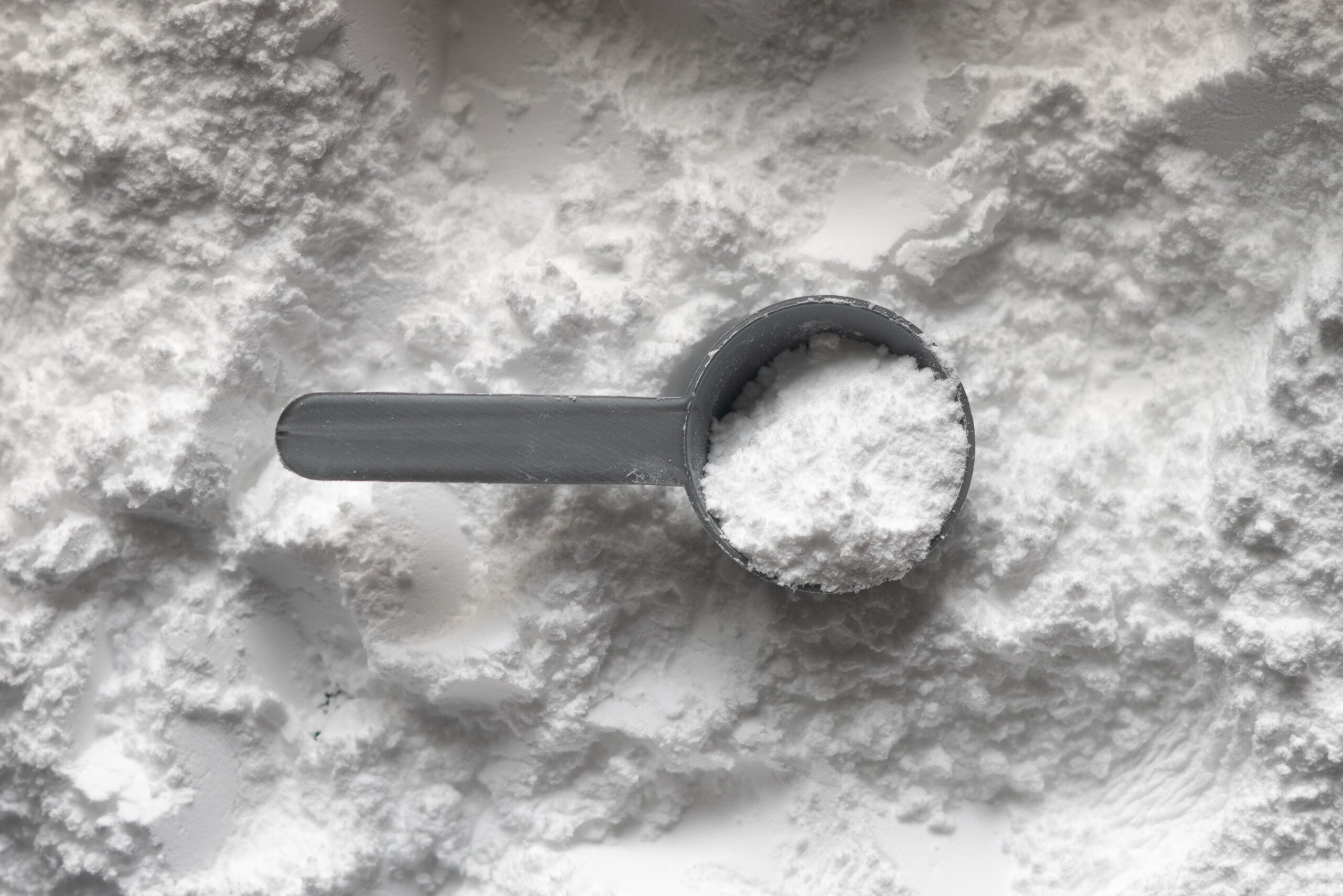Creatine Monohydrate is the finest fit for your dietary supplement in terms of muscle building and strength improvements.

Creatine is a nutritional supplement that has been studied extensively and is utilised by both bodybuilders and endurance athletes. Despite its well-documented health benefits, some people avoid creatine because they believe it is harmful to their health.
Some allege it causes weight gain, cramps, and digestive, liver, and renal problems. Hundreds of research, however, back up its safety and efficacy. So, we’ve included all you need to know about creatine in this article.
What is creatine?
Let’s start with a definition of creatine.
Creatine is a substance that occurs naturally in the human body. It’s a natural source of energy for muscle contraction in your body.
Creatine aids in the production of energy for muscles. Skeletal muscle contains around 95% of it. Creatine is found in the majority of sports supplements in the United States. About half of your body’s creatine stockpiles originate from diet, particularly red meat and shellfish, while the remainder is generated from amino acids in your liver and kidneys. People who begin taking creatine with lower creatine levels appear to benefit more than those who begin with greater levels. It’s frequently utilised to boost athletic performance and muscular mass.
Benefits of Creatine Supplements
- Boost your exercise performance by increasing your strength, power, and muscular mass. Creatine supplements enhance the amount of phosphocreatine in your muscles. Phosphocreatine helps your cells make ATP, the main chemical for energy and all basic living functions, and fuels your muscles during high-intensity activity.
- Assist your recovery after a strenuous workout. It has the ability to change a variety of cellular pathways that lead to new muscle growth. It stimulates the production of proteins that produce new muscle fibres, for example. Creatine has the ability to trigger a number of biological processes that result in greater muscle size and growth.
- Promotes muscle growth: Creatine is the most effective chemical on the planet for building muscle mass. It has been discovered that taking it for just 5–7 days can significantly increase lean body mass and muscular size. During training, increase your fat-free muscular mass. Creatine can help you gain muscle mass in the short and long term. It’s the most powerful muscle-building supplement on the market. It can also aid athletes in coping with high training loads.
- Protein breakdown is slowed. By slowing muscle breakdown, it may help to enhance overall muscle mass. In comparison to creatine supplementation alone, combining both creatine and protein with exercise leads to larger gains in strength and fat-free mass.
- Reduced Fatigue and stress. Creatine supplements may also help you feel less weary and fatigued by giving your brain more energy and raising dopamine levels.
Click here to buy Creatine Monohydrate Supplements: https://foodvez.com/product-category/creatine-monohydrate/
Side effects: How safe is it?
Although creatine is present naturally in your body, taking additional supplements appears to be in general risk-free. There isn’t enough information about creatine supplement safety in pregnant or breastfeeding women.
Creatine supplements are safe to take on a daily basis, according to research, even over a long period of time. Creatine is a relatively safe substance, with only a few known negative effects. However, keep in mind the following:
- You may gain weight if you take creatine supplements since your body’s muscles retain water. It takes seven to 28 days to experience energy effects, depending on how much creatine you already have in your body.
- Taking creatine pills when you’re dehydrated or attempting to lose weight might be risky.
The following are some of the suggested creatine side effects, depending on who you ask:
- Liver and renal damage: Creatine can cause a modest increase in creatinine levels in the blood. Creatinine levels are widely examined to diagnose kidney or liver problems, however, if you have a history of liver or kidney problems, you should be cautious about using creatine supplements.
- Weight gain: Creatine can induce weight gain, although this is due to increased water content in your muscles rather than fat gain.
- Muscle cramps and dehydration: Contrary to popular assumptions, creatine does not raise the risk of cramps and dehydration. In fact, it may lower your risk of developing certain disorders.
- Bloating and digestive issues: Excessive amounts of any supplement or prescription might create digestive problems. It’s possible that additions, chemicals, or pollutants produced during the industrial manufacturing of creatine will cause problems.
- Interactions with other drugs: If you use certain medications, such as blood sugar treatments, creatine may create problems.
- Compartment syndrome: Some people believe that creatine can cause compartment syndrome, which is a disorder in which excessive pressure builds up inside an enclosed region, commonly within the arm or leg muscles.
The bottom line is that creatine’s great safety profile has been repeatedly proven by study. There’s no indication that it causes issues like rhabdomyolysis or compartment syndrome.
Should I use creatine supplements?
One of the most efficient supplements for exercise performance is creatine. There are other varieties, but monohydrate is now the best.
It has the finest safety record, the most scientific backing, and is at least as effective as any other type currently available on the market. It’s also commonly available, and it’s usually the cheapest.
Overall, creatine monohydrate appears to be the most effective type.



